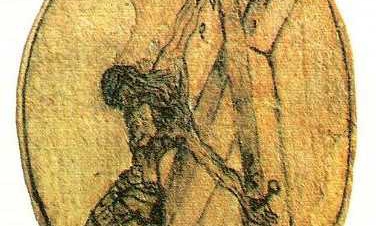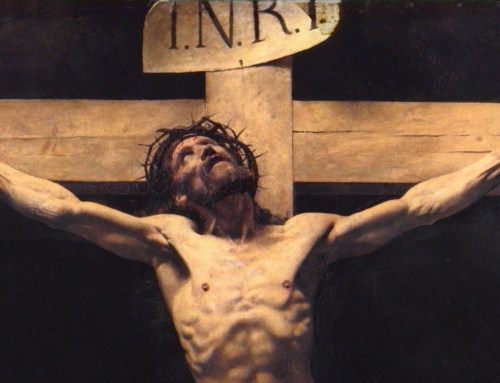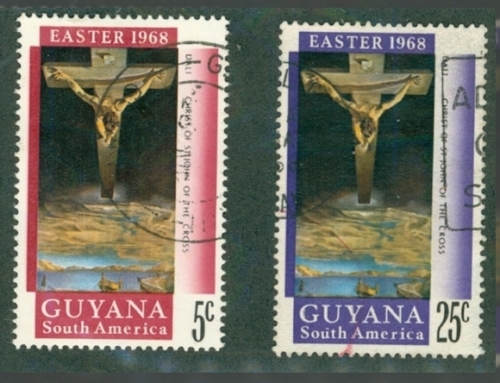There is a story about how St. John of the Cross celebrated Christmas: “On Christmas day . . . St. John of the Cross, while at ease with his brethren at recreation, took the image of the Holy Infant from the Crib and danced round the room, singing all the while: Mi dulce y tierno Jesús, ‘My sweet and tender Jesus,/ If thy dear love can slay,/ It is today’” (Cradle of Redeeming Love, 35). The austere Carmelite mystic of the sixteenth century, known for his spiritual writings and his reform of the Carmelite Order, burst out in song and dance like David before the Ark of the Covenant. God’s presence sometimes makes great men childlike, even giddy.
Saint John of the Cross, however, as his name suggests, knew something of the brutality of life as well. Some of his Carmelite brethren went so far as to imprison him and publicly punish him out of opposition to his reforms. And through the sufferings, St. John held fast to Christ. As he exclaims in Counsels of Light and Love, “Thou wilt not take from me, my God, that which once thou gavest me in Thine only Son Jesus Christ, in Whom Thou gavest me all that I desire; wherefore I shall rejoice that Thou wilt not tarry if I wait for Thee” (71–2). The Incarnation fulfills all our desires—if only we will ponder the manger in wonder. The baby Jesus is God’s perfect gift to us—if only we will wait patiently for his greatness to be manifest in our lives.
In watching and waiting in Advent, we wonder at how small the beginnings of our redemption seem. Even now redemption can seem far from our world: “O sweetest love of God that art so little known” (Counsels, 68). The reign of God burst into the world in the meekest of ways: “How silently, how silently, the wondrous gift is given.” Now we prepare to see the babe in the manger, the silent work of God. We know that the Incarnation happened, that our “redemption is drawing near” (Lk 21:28).
In the sure promise of redemption, the austerity and the name of St. John of the Cross begins to make sense. In the quiet of Bethlehem, God prepares for the crowds of Jerusalem. We begin with him at the manger in Bethlehem and follow him to the hill of Golgotha. God purifies our worldly desires as we take up the cross and follow him. What begins in love, remains in love, and ends in love: “My sweet and tender Jesus,/ If thy dear love can slay,/ It is today.”
✠
Image: St. John of the Cross, Drawing of the Crucifixion







